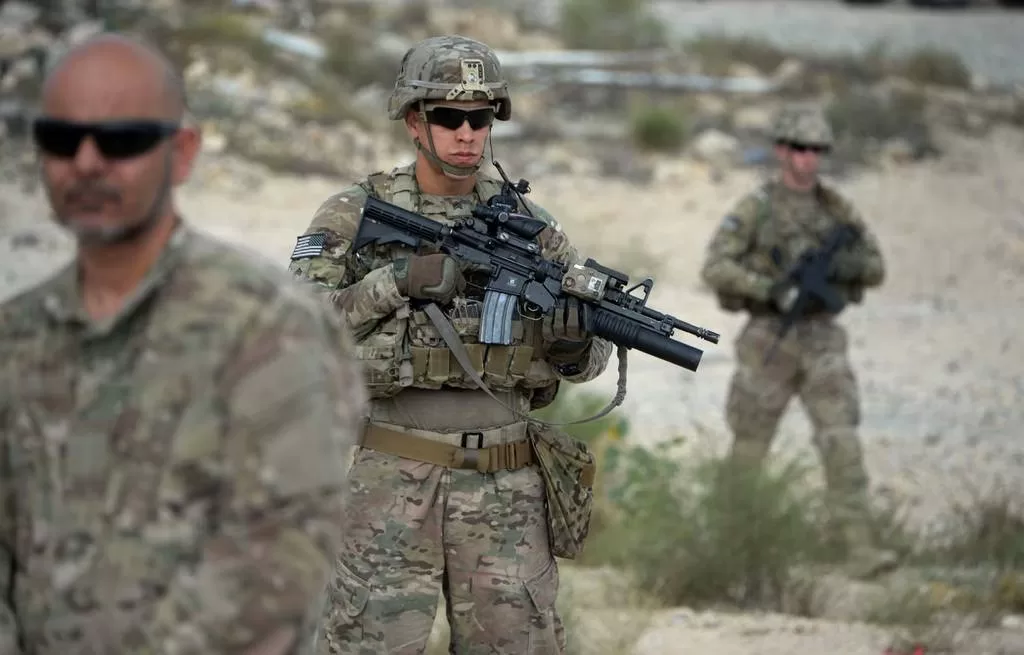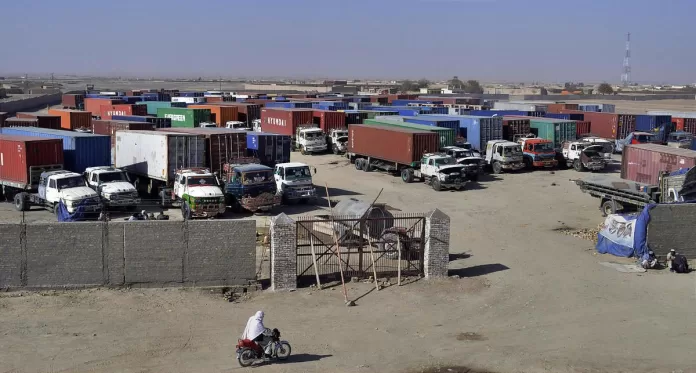In matters of state, where the heart overpowers the mind, rationality is the first casualty. The deliberations by the parliamentary committee and the subsequent debate by the Parliament on the critical issue of whether NATO supply routes should be reopened were more rhetorical and emotional but the final document approved by a consensus indicates that sanity eventually prevailed. The Parliament passed a resolution that laid down over a dozen conditions that are to be met before the ban is lifted and the contentious ones being: a formal apology for the unprovoked Salala attack and actions against those held accountable; an immediate end to drone attacks on Pakistani soil; zero tolerance for any air or ground violation by ISAF/NATO forces; and instead of handouts, prompt payment at international rates for the use of the country’s infrastructure. The document has provided a platform from where Pakistan can negotiate fresh terms of engagement in the ongoing Operation Enduring Freedom where its self respect and dignity is not compromised. With some minor give and take, the chances of a resolution of the crisis to the satisfaction of both sides appear bright.
Right wing parties including those who had boycotted the last elections and have zero representations in the current assemblies, are crying foul and accuse the legislators of acquiescing to the US/Western/Jewish lobby. Led by the JUI, JI (Jamaat Islami) with Tehrik e Insaaf in toe, their emotionally laden charges of a sell out to the ‘infidels’ appeal to the religious sentiments of a majority of the general public. They demand that the ban imposed on the NATO supply routes must continue indefinitely and their stand on the subject is nonnegotiable – period.
While interacting with a group of young and upwardly mobile professionals I enquired about their opinion on the subject and whether Pakistan could consider reopening of the routes if its key demands are met? The majority view was in the negative, regardless of any concessions that USA might offer, based on the following: first, violation of Pakistan’s sovereignty by the drone attacks in our tribal belts despite our vehement and repeated protest; second, our so called friendship and alliances with ISAF/NATO forces in Afghanistan has cost the nation dearly and it is time this tenuous relationship should be terminated and finally, Pakistan must strive to remain neutral in the current conflict in neighbouring Afghanistan and allowing passage of NATO logistics through its territory would compromise its neutral stance.
On the surface the group had presented very strong and cogent arguments to support their viewpoint. Unfortunately these did not factor in the other perspective, without which a decision that best serves the interest of the beleaguered nation would be difficult to arrive at. Acting as the ‘Devil’s Advocate’, I countered with the following argument: the Americans are desperate to end or drastically reduce their combat footprint in Afghanistan but cannot afford the pullout being viewed as an abject surrender and a defeat of their military juggernaut by a ragtag force of non state actors – they are looking for a way out where they can claim that having realised their principal political objectives of defeating the Al Qaeda network in Afghanistan and eliminating its top leadership, they have achieved their goals and are withdrawing honourably. For this strategy to have any degree of credibility they are trying to ensure that following the departure of their combat troops, the current Afghan government is strengthened enough to survive the inevitable Taliban onslaught for at least a year or two. The task is difficult and costly as it is and without the reopening of the Pakistani supply routes it would become prohibitively expensive. Pakistan’s continued policy to deny access to the supplies through its territory will be viewed by the US administration and Congress as a hostile act that would immediately change its status from an ally to an adversary. The government and the people of Pakistan should then be ready to face the consequences of a US backlash.

To begin with, USA has the UN mandate on their military operations in Afghanistan and for as long as they perceive and can convince the international community that Pakistani territories are being used to provide sanctuaries to the Afghan Taliban factions and Pakistan government is either unable or unwilling to eliminate the sanctuaries, the CIA drone attacks might not be seen as a violation of Pakistan’s sovereignty and in the worst case scenario the country could be labelled as a supporter of terror groups. UN approved international sanctions could then be imposed bringing its already teetering economy to a virtual collapse.
Besides the insurgency in FATA and the rapidly deteriorating law and order situation in the rest of the country, Pakistan is facing an armed rebellion in its Balochistan province where rebel groups are literally waging a war of independence from the Federation. Pakistan suspects that they are being financially and militarily supported by India and perhaps even the CIA. Anti Pakistani sentiment is rife in USA and recently Congressman Dana Rohrabacher, who chairs the US House Foreign Affairs Subcommittee on Oversight and Investigations introduced a resolution in the House of Representatives calling upon Pakistan to recognise the Baloch right to self determination. US foreign Office meanwhile strongly condemned the resolution calling it ‘highly irresponsible and a blatant interference in the domestic issue of the country’. If Pakistan’s status changes from ally to adversary, the US administration is unlikely to take such a charitable view and might decide to overtly support the Baloch insurgency thus making the task of keeping the Federation of Pakistan from splintering even more challenging.
Textile exports to USA and Europe is the largest contributor to Pakistan’s total export earnings and much of it is dependent on the quotas that Europe and USA has given to the country. US administration is already under pressure from their textile sector to eliminate the Pakistani quota but to prevent Pakistani economy from further deterioration, it has resisted the demand so far. Once Pakistan no more remains a friend, the textile quota will come under review and is likely to be cancelled. USA would also use its clout to persuade Europe to follow suit. The impact of such a move would lead to unemployment at a massive scale leading to severe internal riots that might be beyond the control of the government to handle.
The Indus Water Treaty Accord that Pakistan had signed with India in 1960 gives Pakistan the full rights to the waters of the three northern rivers that emanate from the Himalayas and enter the Pakistani territory via India while it permits India to build hydropower projects on these rivers within their territory for as long as the entire amount of water is allowed to enter Pakistan. The World Bank has been made the guarantor of the treaty and any dispute regarding its violation can be referred to it for arbitration whose decision would be final. Pakistan has taken up a number of complaints about the Indian violations of the treaty to the World Bank; a few went in its favour while in some the Indian viewpoint was upheld. At present some key Indian hydro projects on the three rivers are under severe dispute. Since USA exercises control over the working of the World Bank, if Pakistan is viewed as an enemy by the former, the chances of getting a fair deal from the World Bank will diminish. Is the nation ready to face such a consequence for its refusal to reopen the routes?
I have listed some of the punitive measures USA can adopt if Pakistan refuses to reopen the routes. There are other avenues as well through which it can blackmail and pressurize Pakistan to accept its dictates. Does that mean that Pakistan has no option but to capitulate to the US demands? In the seemingly bleak scenario, two aspects strengthen Pakistan’s hand where it can assert its legitimate rights and does not have to meekly cave in to US wish list.
As a nuclear state with a population of over 180 million, destabilizing Pakistan beyond a point would be detrimental to world security. Reducing Pakistan to the status of a failed state where radical elements especially those with religious agendas seize power and the nuclear assets come under their control would be very dangerous. USA and the west would then be confronted with a nightmare of how to secure Pakistan’s nuclear arsenal and ensure these do not fall into the hands of those whom they consider a threat to their national security without triggering a nuclear war. Options of either doing nothing or attempting to seize or destroy the nuclear assets will both be extremely hazardous that are best avoided; hence destabilizing Pakistan would not be in their interest. A continued closure of the routes, therefore, is likely to sprout economic punitive measures to punish Pakistan but perhaps not to the extent where the country and the society implode.
While USA has the ability to hurt Pakistan for its refusal to facilitate USA’s end game in Afghanistan, it knows that without a friendly and cooperative Pakistan their exit strategy would be compromised. It, therefore, follows that USA would be willing to appease Pakistan’s concerns as long as they do not jeopardize their core interests. While total cessation of drone attacks is unlikely for as long as the presence of Afghan Taliban are suspected in Pakistan’s Tribal Belts, they might agree to allow a much greater say to the ISI in the targets that are engaged by the drones. An apology at some level for the Salala attack should be forthcoming but given the anti Pakistani sentiments prevalent in USA, a direct presidential apology would compromise Obama’s re-election campaign and probably will not occur. Instead it might be offered at a slightly different level. Similarly, given the extremely nationalistic and jingoistic spirit of US citizens about their country and their almost blind and unflinching support to their military, a fair trial of those guilty of the Salala mishap is not likely. Identification of some scapegoats and superficial legal and administrative actions against them are perhaps the limit the current US administration can afford to undertake. The payment to Pakistan for the use of its territory for the transportation of supplies at the international rates in lieu of aids and grants would be, in the words of the younger generation, ‘a piece of cake’.
To conclude, in the current standoff between Pakistan and USA on the subject of reopening of the NATO supply routes, Pakistan is not entirely at the mercy of USA’s whims – it has some trump cards but what must be remembered that it does not hold the ace of trumps and if it misplays the hand these can be neutralized by trumps of higher denominations which the other side might possess. Used wisely, Pakistan can avoid the danger of being turned into a pariah state and can renegotiate terms that would besides protecting its security, enhance its prestige among the comity of nations. While the parliamentary endorsed resolution reflects the prevailing anti American sentiments of the public, it nevertheless remains cognizant of the ground realities and provides the government the necessary leverage to resolve the crisis without jeopardizing its national interest. Those opposing it are unwittingly playing to the gallery and putting the very survival of the nation at stake.




